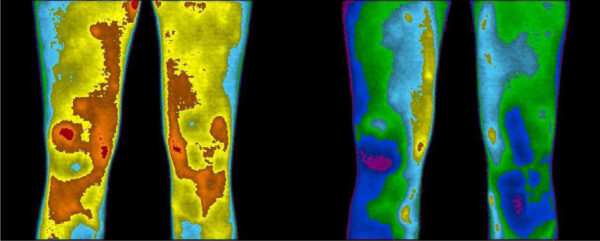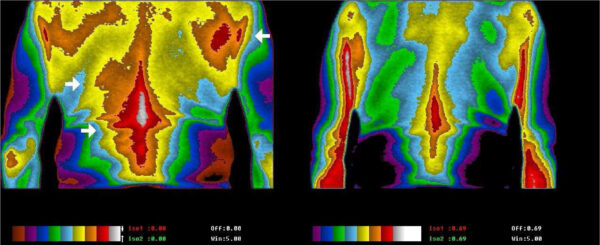Maybe you’ve heard of grounding, or earthing – but what does it do and does it actually work?
It is well known that the earth’s surface carries an electrical charge. The real question is, how does that affect our bodies, and can we harness it for our benefit?
Is it really as simple as putting your bare feet on the ground? Is it really healthy for everyone?
The answer is yes – and no.
Since Clint Ober’s documentary film (and book) The Earthing Movie, which brought the benefits of grounding into greater awareness due to his research, the scientific field has been abuzz with quantifying the benefits of a cutting-edge healing tool. We’ll explore some of what research has found – the good stuff and the cautionary data. So, what’s so great about grounding?
Grounding helps decrease stress and pain.
Sure, studies have shown that being in nature decreases stress levels – but does connecting with the ground do too? This study found that yes, the body has a physiological response to grounding that lowers stress. (See below for ways to do this that doesn’t require being outside.) In fact, grounding also lowers pain, inflammation, and overall tension levels, which help alleviate the body’s burdens. Need help relaxing? Grounding can help – this 2011 study also showed that heart rate variability improves and the parasympathetic nervous system is activated when the body is grounded, meaning it promotes relaxation.
Grounding supports better sleep.
Did you know that insomnia costs Americans millions of dollars each year with direct and indirect costs? Sleep is such an important part of health (read more here) yet tends to be one of the most abused bodily functions. Grounding helps improve sleep, especially when the body is grounded during sleep. This helps the body rebalance cortisol (stress hormone) levels and improves circadian rhythms. (See below for ways to ground during sleep.)
Grounding improves your body’s response to illness.
Considering that grounding reduces inflammation, improves the endocrine and nervous systems, improves sleep (which directly affects immune response), supports heart health, and so much more, it comes as no surprise that a pilot study found grounding to improve the immune system. When all of the body’s systems are in good working order, the immune system doesn’t have to help fix things inwardly and can have all of its defenses ready for external intruders. A very interesting 2020 study found that regular grounding dramatically improved COVID-19 symptoms and prevented severe illness.
Did you know that your vagus nerve is an important part of your immune system? Among its many, many functions, it helps your immune system reset so it doesn’t over- or under-respond to an issue in the body. Grounding was found to improve vagal tone (or how well your vagus nerve works), especially in babies in the NICU – hence improving the immune system as well.
Grounding reduces inflammation.
Ah, inflammation! It is thought that inflammation is involved in almost every bodily ailment. If there is a disturbance in the body, it is likely that inflammation is occurring alongside it. Grounding has been shown to reduce inflammation. The earth’s surface has been found to have free and mobile electrons that act as natural antioxidants, which decrease inflammation. Read more ways to reduce inflammation here.
Studies have begun to show thermal imaging of the effects of grounding. These images and descriptions are taken from this research review article on the effects of grounding.


Grounding helps protect against harmful EMFs.
It’s not a secret that environmental electromagnetic fields (from power, electrical, and wireless devices at home, work, school, community, etc – including 5G) have been found to detrimentally affect our bodies. (Read more about 5G here.) This includes increased risk of cancer, DNA damage, altered brain development, immune dysfunction, neurological disturbances, memory damage, and more.
The good news is that grounding has also been found to affect our bodies’ physiological systems – but in a positive way (see below). In fact, Nobel Prize winning physicist Richard Feynman found that grounding the body with the Earth makes the body insusceptible to the effects of EMF around it. So, one of the best ways to protect yourself against new technology is to return back to the Earth.
The benefits don’t stop there.
The list keeps growing as the research grows. Additional benefits of grounding include:
- Improves energy
- Helps balance hormone levels
- Increases production of melatonin
- Improves mood
- Improves circulation
- Improves glucose (blood sugar) regulation
- Helps prevent calcium & bone density loss
- Increases metabolism
- Reduces muscle damage & accelerates muscle recovery
- Speeds wound healing
- Reduces PMS and hot flashes
- Anti-aging
How To Ground Yourself
Yes, it can be as simple as putting your bare feet on the ground. However, with today’s culture and lifestyles, most of us have moved away from doing this very simple thing. Plus, it’s pretty common practice to be wearing shoes these days! (See a way around this below.) So, besides the obvious, what are ways to ground yourself?
- Put your bare feet on the ground. It can be grass, dirt, sand, etc – even concrete, because concrete (not cement) is made up of tiny particles from the earth. As long as there isn’t a vapor barrier or sealant between you, the concrete, and the earth, the concrete will carry the charge of the earth to your body.
- Use grounding products. There are many grounding products on the market today that allow you to ground while sleeping, at your desk, or even walking around. We love sleeping on grounding mats – we have one for every bed in our house. We also use different grounding mats. I also absolutely love my Earth Runner shoes and wear them whenever I can. These shoes contain copper in the sole which allow you to stay connected to the Earth’s grounding ability even while wearing shoes – amazing! (Click Here for grounding tools that I use, you can use my affiliate code RESTORE to save 12%)
- Stay hydrated! Dehydration lessens the benefits of grounding. Water is a conductor – so the earth’s charge needs to be able to be conducted through your body. For more on dehydration & how to beat it (it’s more than just drinking more water!), tap here.
- Do it daily. Just 30-40 minutes of grounding a day was enough to significantly reduce pain and stress, according to these observations. This is best practice – but if you’re not able to ground daily, anything is better than nothing. We can always do better than yesterday, last week, last month – your health is worth it.
A note of caution for those on blood thinners and thyroid medication:
Is grounding for everyone? I want to say yes, though the research indicates certain people need to use caution. Grounding reduces the viscosity (or thickness) of blood, which is usually great news as this can play a role in cardiovascular health (thick blood can affect the heart’s efficacy). However, if one is on blood-thinning medication, it would be wise to be cautious. With regular grounding, medication may need to be adjusted, so I recommend you are under the supervision of a trusted health practitioner.
Those on thyroid medications will also want to be cautious. Earthing affects thyroid function, so it may be possible that medication will need to be adjusted if one is practicing regular grounding.
See more on medications and grounding here.
Simple, natural, & powerful.
Even if the research wasn’t enough, everything that I have seen in my own practice with my clients and in my own life has shown me how powerful grounding is. I have had clients significantly improve with intentional daily grounding as part of their personalized protocol. But – let’s say it’s all a hack… Is there anything really so bad about touching the earth every day?
Cheers to better moods, less pain, better sleep, more connection, and so much more – just from grounding!
Ignite the Healer within,
Amber Bodily
P.S. If you want more simple and powerful natural remedies, check out my online course The All-Natural Medicine Cabinet: Your Guide To Powerful Remedies For Common Ailments here.









